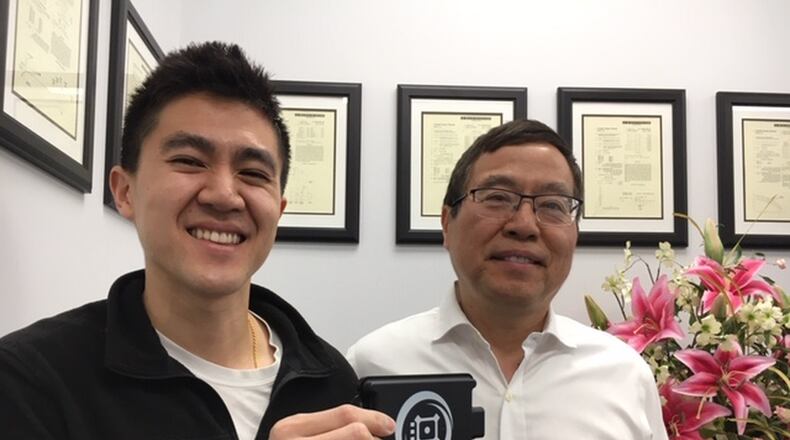Beavercreek software business Oculii is developing powerful radar for autonomous systems, including vehicles. Its work has already been recognized by the Dayton Development Coalition as the coalition’s 2019 Entrepreneurial Startup.
MORE: Coronavirus: Wright-Patterson leaders weigh recommendations
Oculii has a newer facility off Space Drive — across the street from its home of a few years — to accommodate about 30 people working in radar and mechanical engineering, computer science and other areas with a singular focus — to help autonomous vehicles and systems see well.
Oculii makes 4D intelligent sensing radars for self-driving vehicles. The systems use the cloud to process and analyze information, allowing radar systems to be more effective, smaller, and cheaper than traditional units.
It’s about making cars safer and easier, whether in autonomous systems or in “centaur” systems, with computers supplementing and supporting fundamental human control.
MORE: Coronavirus: If you think you're sick, what should you do?
“Our sensors are really the eyes for these autonomous systems,” he said. “They’re different than cameras — cameras are kind of like humans, they see in the optical domain.”
Oculii’s technology can see through weather, fog and capture objects relatively far away — situations that can confound cameras — giving autonomous vehicles more time to “make a decision,” as Hong put it.
“We see autonomous vehicle technology not replacing humans, at least not for the next five to ten years,” Hong said. “We see it supplementing humans. We see it making the human driver 100 times if not 1,000 times safer.”
MORE: Wright Patterson team oversees Air Force One updates
The company’s software takes the vehicle’s existing radar hardware “and makes it five to a hundred times better in terms of performance and resolution,” he said.
Steven Hong is a Beavercreek High School graduate who worked in Silicon Valley as a venture capitalist before partnering with his father, Lang Hong, a longtime Wright State University professor and director of its international campuses.
“We’ve have a lot of connections to Beavercreek,” said Lang Hong, Oculii’s chief technology officer. “About five years ago, we saw the opportunity to do some research and commercialize this radar area. So that’s why we started the company here.”
Most of the company’s 35 employees work on Space Drive. Privately held Oculii has business offices in China and California, with sub-assembly manufacturing work happening in Taiwan, Vietnam and Europe, and final assembly work taking place in Beavercreek.
Customers and clients include tier 1 manufacturers and names that most people will recognize — but Steven Hong said he can’t name them today.
But the company in recent weeks has publicized partnerships with German automotive electronics supplier Hella and German radar chip producer Infineon.
“The sky is the limit for a company like ours, because I think safety technology is always going to be in demand,” Steven Hong said. “People will always want safer transportation.”
About the Author

